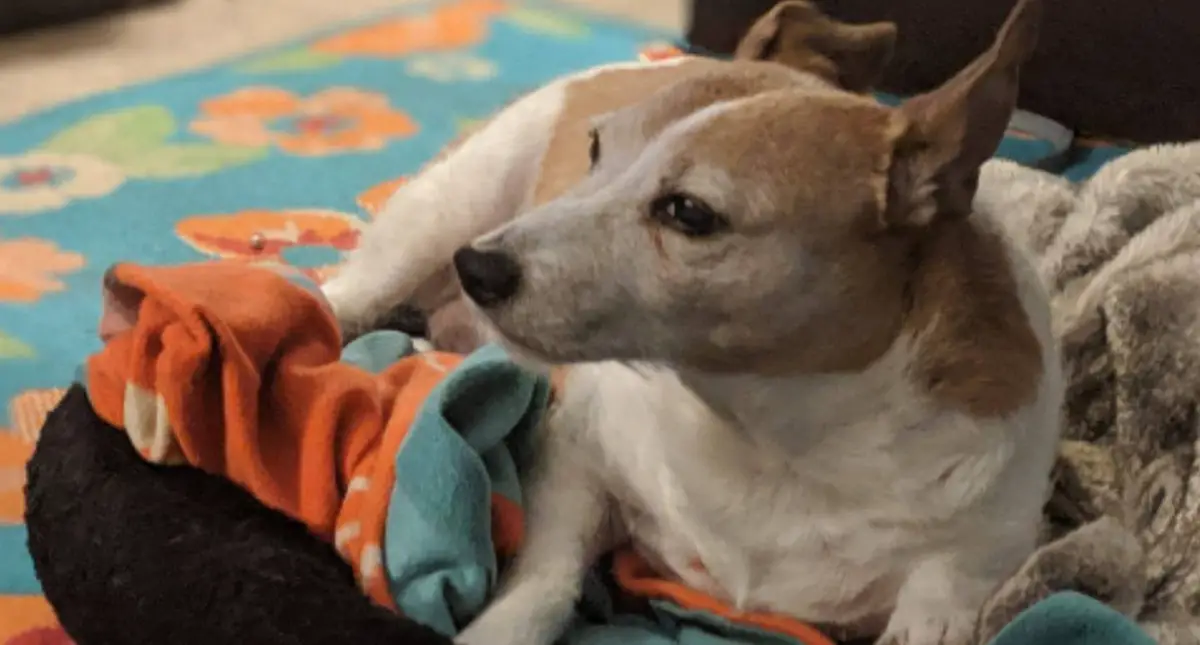Table of Contents
*This post may contain affiliate links. As an Amazon Associate we earn from qualifying purchases.
Puppies are great, but there’s something wonderful about senior dogs. They’re old friends with whom we’ve made years of memories. They’re past all that frantic puppy energy and ready to be good companions. And best of all, after all this time, they know our darkest secrets and still love us.
Yes, there’s something wonderful about senior dogs. So let’s give them their due!
What is a Senior Dog?
At what age does a dog become a senior? That depends on a lot of things, but
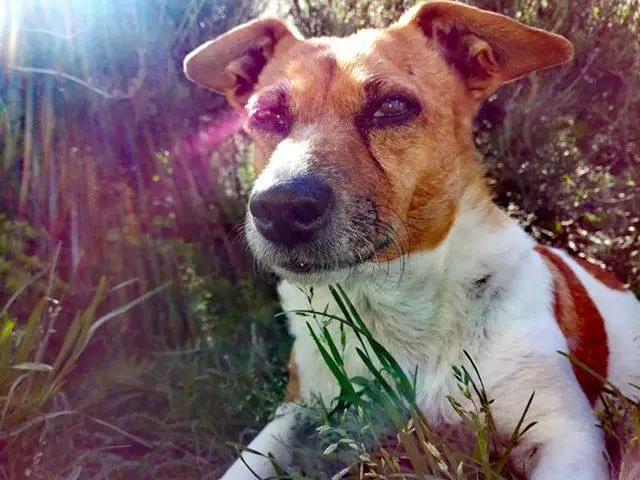
Some people would call a five-year-old dog a senior. And for a Mastiff or a Great Dane, that might be fine. But for a spunky little terrier, five is just getting started. For the purpose of its “Seniors for Seniors” program, the Humane Society defines a senior dog as seven years of age or older. But most seven-year-old Jacks are still quite young at heart, if not in body.
The American Medical Veterinary Association defines “senior”
So what’s so great about elder Jacks? The list is so long it might be easier to ask what’s not so great about them. But we’re not going to do that.
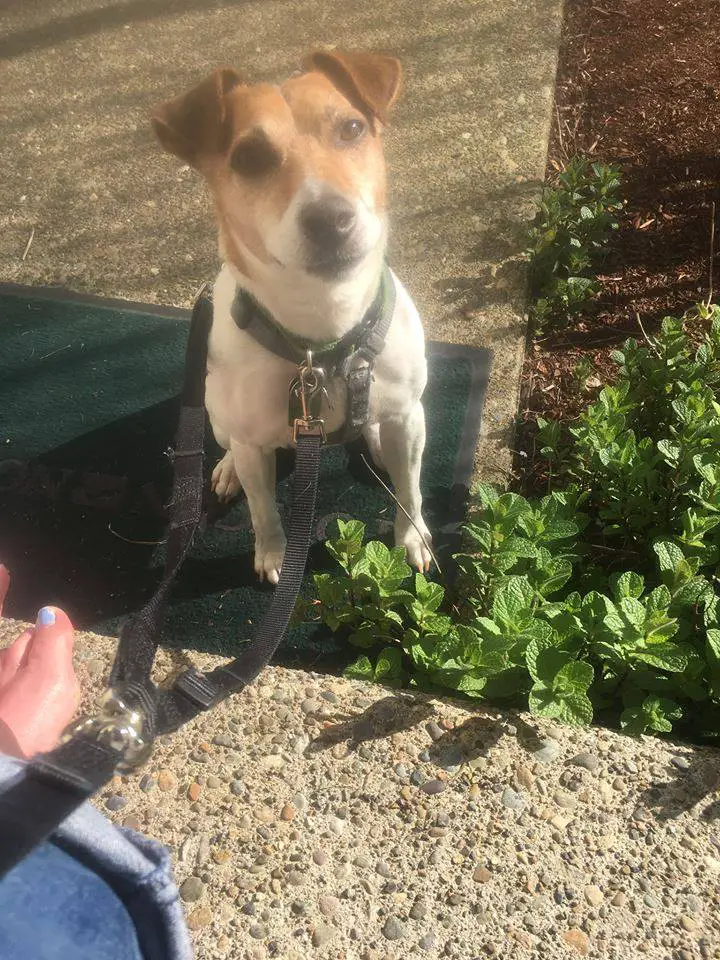
Handsome Toby is 14 and ready to drag you around the block a few times!
What’s So Great About Elder Dogs?
So why do we love our frosty-faced friends? Let us count the ways!
They already know the ropes
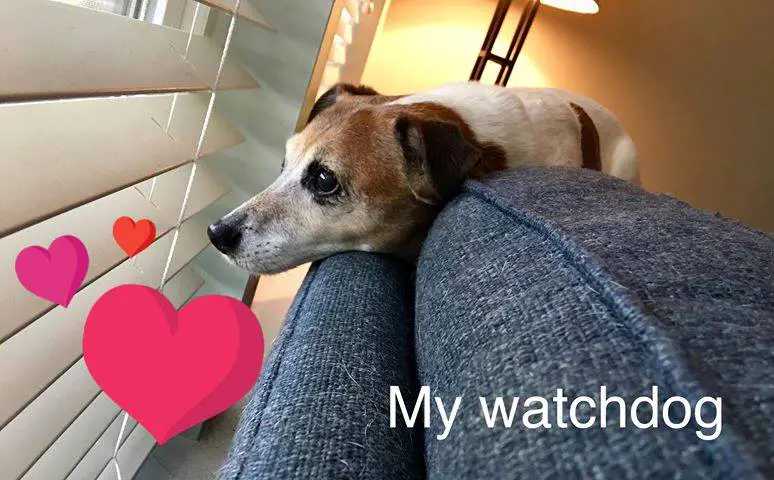
A dog that’s been with you for a long time knows the house rules. They know when you mean business, and when they can wheedle you into a treat. They’re housetrained and know if they’re allowed on the furniture. They know if you’ll tolerate begging at the table, or if they should wait patiently for scraps. They know when walkies happen, and when you’re ready to throw the ball.
You don’t have to teach an elder Jack any new tricks, because they already know.
And that’s a lot less work for you.
They can teach a younger dog the house rules
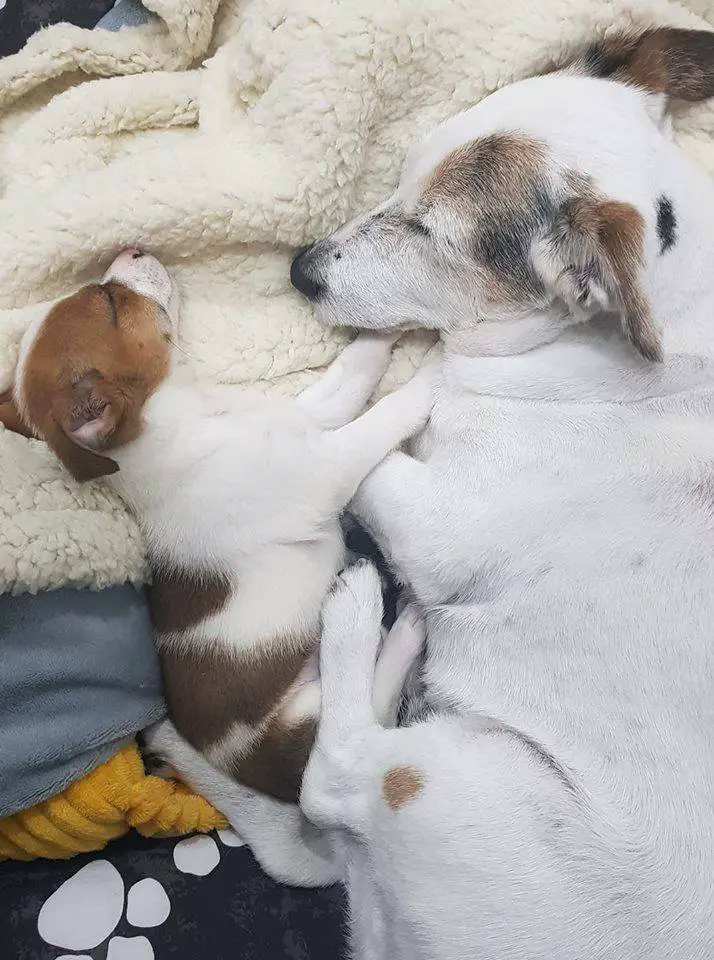
Not every elder dog has the patience to train up a new pup, but you can bet your Kong toy that your elder dog will keep a pup in line. A lot of people like to bring a puppy into the house when their current dog starts getting up in years. A lot of times this works out well. But for your elder dog’s comfort, make sure your senior has a place to get away from the puppy when the puppy’s antics start getting on your senior’s nerves. And make sure to give your elder dog lots of extra love so they know you’re not trading them in for a younger model.
They won’t run you ragged
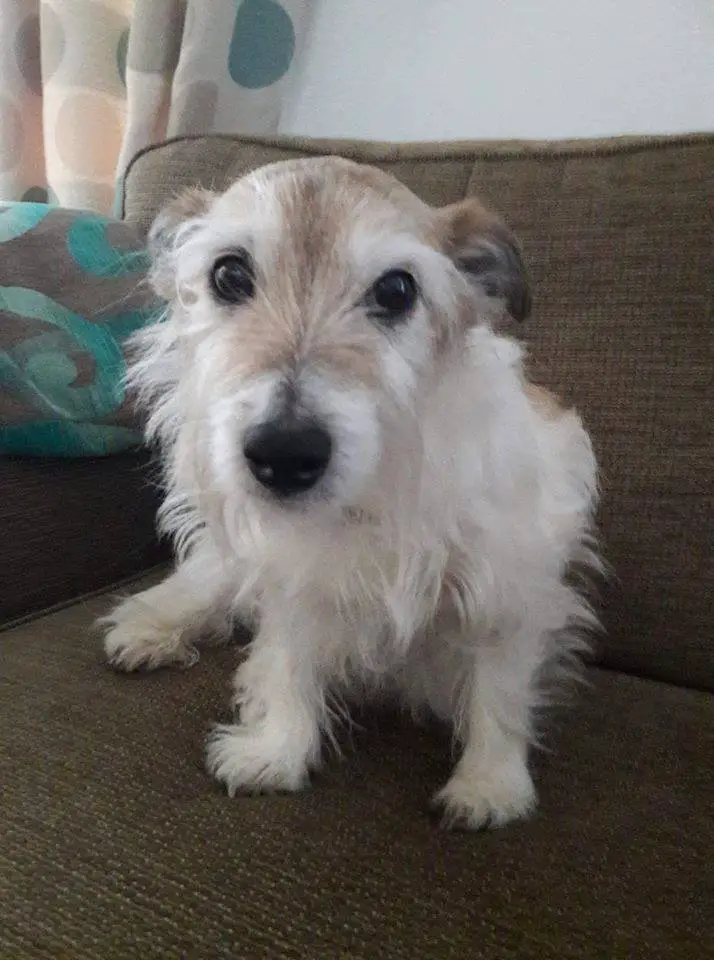
Plenty of elder dogs have energy, but they also have dignity. They’re not going to pull you off your feet, and probably won’t jerk your arm out of its socket dashing after a squirrel. They likely won’t jump up on strangers, and an elder Jack may only need fifteen walks a day instead of twenty.
Elder dogs are ready for more dignified fun, like a stately promenade. They’ve learned how to be good companions and how to stop and smell (or wee on) the flowers.
They won’t chew up your shoes
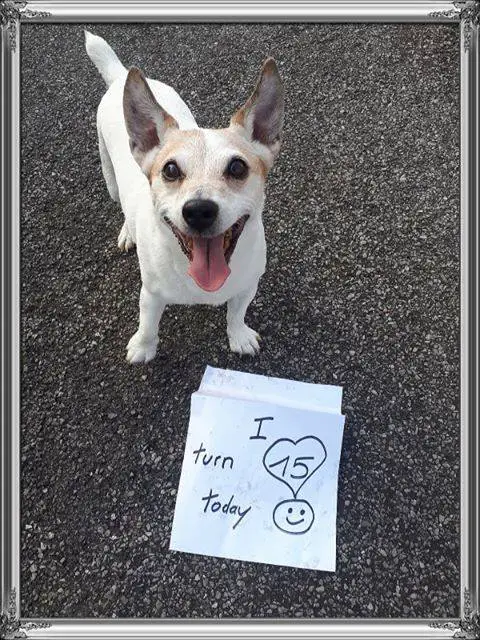
Or your pillows, or your furniture. They’re long past teething, and they know what’s a snack and what isn’t.
They know you through and through

This is probably the best thing of all. An elder dog has been with you through thick and thin. They know when you’re happy, when you’re sad, and when you need a cuddle. You’ve been there for each other and will always be in each other’s hearts. And the memories!
There’s Nothing Like an Elder Jack

Everyone loves a snuggly puppy. But there’s something special about an elder dog. If you’re lucky enough to have a gray-muzzled friend, give them a hug today.
Featured Image shows Riley, age 18.

